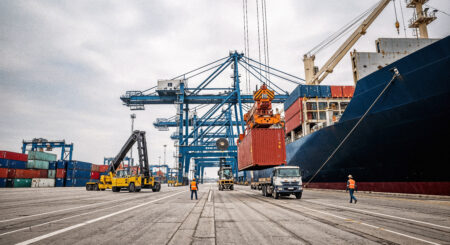India–New Zealand wrap up second FTA talks; third round to take place in New Zealand this September.

India and New Zealand have successfully concluded the second round of negotiations for their much-anticipated Free Trade Agreement (FTA) today in New Delhi, marking a significant step forward in strengthening trade and investment ties between the two nations.
Held from 14th to 25th July, the second round built on the momentum of the first discussions held in May and saw substantial progress across a wide range of focus areas, including
- Trade in Goods and Services
- Investment
- Rules of Origin
- Customs and Trade Facilitation
- Technical Barriers to Trade
- Sanitary and Phytosanitary Measures
- Economic Cooperation
The negotiations were collaborative and forward-looking, with both delegations showing a strong willingness to achieve early convergence on key texts. Officials described the round as “productive,” with commitments reaffirmed to concluding a balanced and comprehensive agreement.
The FTA journey began with renewed vigour during the March 2025 visit of New Zealand Prime Minister Christopher Luxon to India, guided by the shared vision of Prime Minister Narendra Modi. The agreement was officially launched during a meeting between Union Commerce Minister Piyush Goyal and New Zealand Trade Minister Todd McClay on March 16, 2025.
Looking ahead, the third round of talks is scheduled for September 2025 in New Zealand, with virtual intersessional meetings planned to keep the momentum going.
Trade figures highlight the growing synergy: bilateral merchandise trade hit USD 1.3 billion in FY 2024–25, reflecting a robust 48.6% growth from the previous year. The FTA is expected to deepen market access, boost supply chain resilience, and provide a predictable environment for businesses across both countries.
As India and New Zealand move toward closer economic integration, this FTA could become a cornerstone of Indo-Pacific trade cooperation, offering opportunities across sectors while fostering shared growth and prosperity.
Source: PIB











